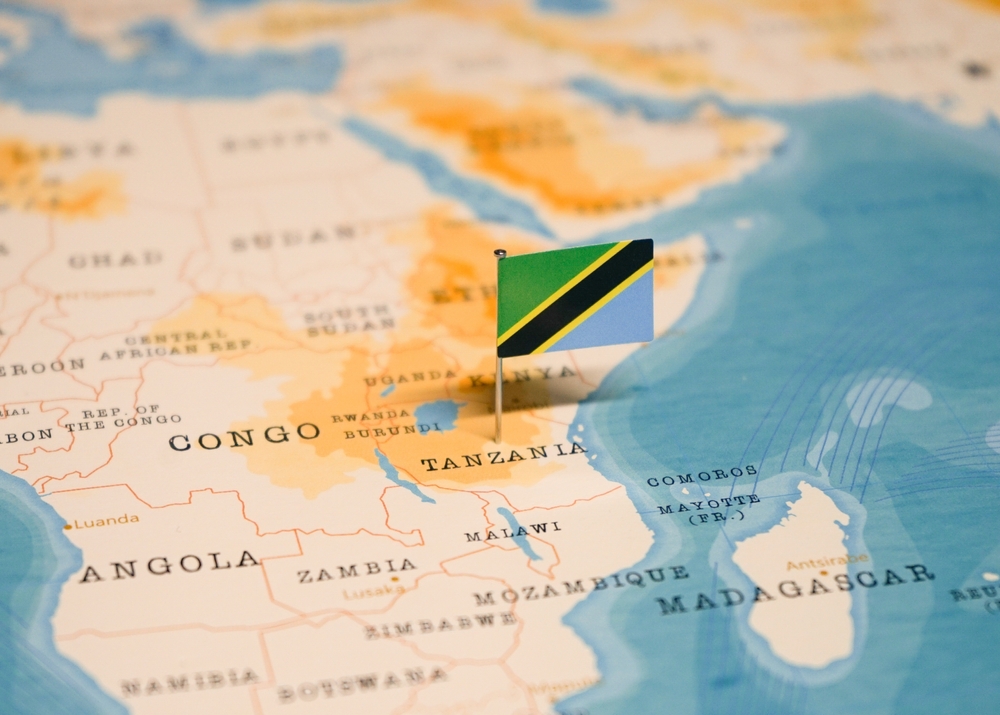Tanzania’s Finance Minister Mwigulu Lameck Nchemba, presented the country’s fiscal year 2024-25 (FY24-25, July 2024 to June 2025) budget on 14 June 2024, with an aim to encourage economic growth and improve Tanzanians’ incomes.
On 26 June 2024, the parliament of Tanzania approved the government’s budget of TSh49.4trn ($18.9bn) for FY24-25, an increase of 11.2% compared with an allocation of TSh44.4trn in the previous term.
Of this total, the government allocated TSh34.5trn towards recurrent expenditure while TSh14.9trn was allocated towards development expenditure, with a focus on energy and transportation infrastructure development.
According to the latest budget, Tanzania’s gross domestic product (GDP) is expected to grow by 5.4% in 2024, compared with 5.1% growth in 2023, supported by investments in the domestic agriculture, construction, and mining sectors.
Moreover, the government plans to increase tax revenue from 12.6% of GDP in FY23-24 to 12.9% in FY24-25 and domestic revenue from 15.4% of GDP to 15.8% during the same period.
The FY24-25 budget also focuses on implementing the third Five-Year National Development Plan (FYDP III), under the theme ‘Realising Competitiveness and Industrialisation for Human Development’.

US Tariffs are shifting - will you react or anticipate?
Don’t let policy changes catch you off guard. Stay proactive with real-time data and expert analysis.
By GlobalDataUnder the FYDP III, the government intends to enhance key productive infrastructure, comprising railways, roads, water and air transport, coupled with reliable access to energy.
The government’s efforts at prioritising the completion of flagship and strategic projects under the FY24-25 budget to foster inclusive and competitive economic growth are expected to provide a boost to the country’s construction sector.
Also, the government has allocated TSh1.5trn towards the construction of Tanzania’s Standard Gauge Railway (SGR) project and TSh294.8bn for the repair and maintenance of the existing metre gauge railway.
Major flagship and strategic projects include the construction of the:
- 2,115MW Julius Nyerere Hydroelectric power project.
- 358MW Ruhudji Hydropower project.
- 222MW Rumakali Hydropower project.
- Lindi Liquified Natural Gas Plant project.
- SGR project.
- Bridges and flyovers, including the Kigongo-Busisi bridge.
- The Kilwa fishing harbour and procurement of fishing vessels.
- Mkulazi sugar processing plant.
- Engaruka Basin Soda-Ash project.
- Mchuchuma and Liganga projects.
- The East African Crude Oil Pipeline from Hoima (Uganda) to Tanga (Tanzania).
- The renovation of Air Tanzania.
Additionally, the government has announced plans to encourage public-private partnerships to fund large infrastructure and expedite project completion, under the new budget.
Manufacturing, logistics, and irrigation are other sectors that will benefit from the recent budget allocations.
To attract foreign and domestic investment in industrial and manufacturing activities, the government announced plans to develop special economic zones in the country.
To support the agriculture sector, the government initiated new irrigation projects worth TSh1.2trn, covering 543,366ha, coupled with the construction of 14 large dams.
The government also announced plans to invest in tourism infrastructure such as airports, roads, and hospitality facilities, to attract more tourists and thereby increase tourism revenue.
As part of the latest budget, significant funds will also be allocated for the preparation of the upcoming 2027 Africa Cup of Nations (AFCON), which includes the construction and rehabilitation of stadiums for the football tournament.
In March 2024, the Tanzanian Ministry of Culture, Arts, and Sports signed a contract worth TSh286bn with Chinese construction company China Railway Construction Engineering Group for the construction of the Dr. Samia Suluhu Hassan Stadium in the Arusha region of the country.
The football stadium is expected to be completed by 2027.
The stadium is being built to host AFCON finals and will also be used to host other commercial and official government events, with an aim to boost tourism in Arusha.
Leading data and analytics company GlobalData expects Tanzania’s construction industry to grow by 5.8% in real terms in 2024, before averaging an annual growth of 7.9% from 2025 to 2028, supported by investments in transport infrastructure, coupled with investment under the Tanzania Water Investment Programme that aims to strengthen clean drinking water infrastructure by developing water supply schemes and a national grid by 2030.
According to the Tanzania Investment Centre, 211 investment projects worth TSh3.8trn were registered in the first quarter (Q1) of 2024, an increase of 111% compared with Q1 2023.
However, the Tanzanian construction industry is expected to face downside risks owing to high national debt.
The country’s debt-to-GDP ratio is expected to increase from 52.4% in 2023 to 52.7% in 2024.






